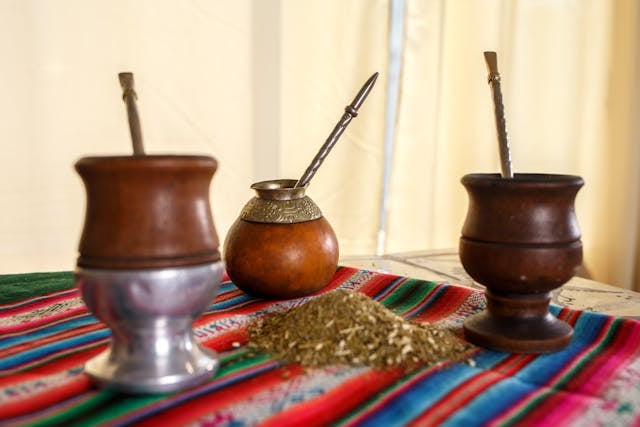Uruguayan vs. Argentinian Slang: 9 Key Differences
For the untrained ear, Uruguayan and Argentinian Spanish sound identical. And to some extent, that’s true. The variety spoken in Uruguay is incredibly similar to the one used in Buenos Aires, thanks to the two countries’ close geographical and cultural ties. But there’s one area where the differences are impossible to ignore: Uruguayan vs. Argentinian slang.
→Sign Up Now: Free Trial Spanish Lesson With a Native Teacher!←
Argentinians and Uruguayans often find themselves amused by these little linguistic quirks when chatting, realizing that the same words don’t always mean the same thing. To help you navigate these regional differences, we’ve compiled some of the most interesting Uruguayan vs. Argentinian slang terms.
1. Gurises (U) vs. Pibes (A)
If you hear someone in Uruguay talking about gurises, they’re referring to kids. But the same word in Buenos Aires? Good luck finding anyone who uses it. Over in Argentina, pibes is the go-to word for children.
The fun part? Both words aren’t just for kids. Uruguayans and Argentinians alike often use them affectionately to talk about their friends. So, if an Uruguayan says, “Vamos, gurises!” and an Argentinian says, “Dale, pibes!”—they’re both just rounding up their crew.
2. Pila (U) vs. Bocha (A)
On their own, these words have totally different meanings. Pila literally means “battery” in Uruguay, while bocha in Argentina refers to a ball used in sports like bocce. But when it comes to slang? They both mean “a lot.”
In Montevideo, you might hear someone say, “Tengo pila de trabajo” to complain about having loads of work. Meanwhile, an Argentinian in Buenos Aires would say, “Tengo bocha de laburo.” Same struggle, different slang.

3. Tá (U) vs. Bue/Re/Cla(ro) (A)
If there’s one word Uruguayans love, it’s Tá. Quick, punchy, and full of attitude, it’s their go-to phrase for all sorts of situations. Depending on how you say it, it can mean:
- Tá, te entiendo. (“Got it, I get you.”) – Shows you’re paying attention.
- Tá, dale. (“Okay, let’s do it.”) – Used when agreeing to something.
- Tá, no pasa nada. (“Eh, whatever.”) – Used to dismiss the importance of something.
In Argentina, there isn’t one magic word that covers all these meanings like Tá does for Uruguayans. Instead, they mix it up with phrases like Bue (short for bueno, often used to acknowledge something), Re (which amplifies meaning, like Re bien for “all good”), or Claro (which translates to “of course” but is often used just to show you’re listening).
So while an Uruguayan might nod and say Tá in response to a story, an Argentine might hit you with a casual Bue or Cla.
4. Toque (U) vs. Recital/Reci (A)
In Uruguay, toque means a live music gig, coming straight from tocar (to play an instrument). If someone says, “Hay un toque este finde,” they’re talking about a concert happening that weekend. The word makes gigs sound casual and effortless—just a quick toque of music.
Argentinians, on the other hand, don’t use toque for concerts. Instead, they call them recitales, or more informally, recis. If you hear, “Vamos a un reci mañana,” they’re inviting you to a show, just with a different slang spin.
5. A las órdenes (U) vs. Cualquier cosa me avisan (A)
On paper, A las órdenes sounds like something straight out of a military handbook. But in Uruguay, it’s just a warm way of saying “I’m happy to help.” Whether someone holds the door open for you or offers assistance at a shop, they might end the exchange with a friendly A las órdenes, signaling that you can count on them.
Argentinians don’t really use this phrase, but they have their own version: Cualquier cosa me avisan (“Let me know if you need anything”). It’s a bit more casual but serves the same purpose.
6. Merecen (U) vs. De nada (A)
Uruguayans take gratitude to the next level. Instead of just saying De nada (“You’re welcome”), they might respond to Gracias with Merecen, meaning “You deserve it.” It’s a small phrase with a big impact, making kindness feel a little more personal.
In Argentina, this phrase isn’t common. Most people stick with the classic De nada or No hay de qué (“No problem”), which get the job done but don’t carry quite the same warmth.

7. Gusto tuyo (U) vs. Gusto de vos (A)
Uruguayans have a slightly different way of expressing romantic interest. Instead of saying Gusto de vos (“I like you”), like they do in Argentina, they flip it around to Gusto tuyo, which literally means “I like yours.” Sounds cryptic, but it’s just their unique way of saying they’re into someone.
In Argentina, they stick to the straightforward Gusto de vos or even Me gustás, keeping things clear and direct.
8. Demás (U) vs. Copado (A)
Uruguayans have a habit of giving common words a fresh twist, and Demás is a perfect example. While in most Spanish-speaking places, estar de más usually means something is excessive or unnecessary, in Uruguay, demás is a way of saying something is amazing. If a friend tells you, “Esa película estuvo demás,” they’re not saying it was over the top—they mean it was fantastic.
Argentinians, however, don’t use demás this way. Instead, they go with copado, piola, or the more universal genial when talking about something cool. If you hear someone say, “Ese plan está copado,” they’re just as excited as a Uruguayan saying “Está demás.” Different words, same enthusiasm.
9. Ñeri (U) vs. Grasa (A)
Here’s one to use with caution. In Uruguay, ñeri isn’t exactly a compliment. It’s a slang term for someone rough around the edges—someone seen as vulgar, uneducated, or lacking refinement. Depending on the tone, it might be used playfully among friends, but in the wrong context, it’s definitely not flattering.
In Argentina, the closest equivalent is grasa, which literally means “grease”, or turro, which is used to describe people from unprivileged areas who like cumbia villera, the music associated with the working-class neighborhoods known as villas (slums). Some people use turro casually, but others see it as pejorative, especially when linked to stereotypes about villeros—a term that, while sometimes reclaimed by those in the villas, is often used dismissively by outsiders.
While Uruguayan and Argentinian Spanish might sound almost identical to outsiders, the unique slang in each country proves otherwise. From everyday words like pibes and gurises to expressions that carry different meanings across the Río de la Plata, Uruguayan vs. Argentinian slang is full of small but fascinating differences. Whether you’re visiting Montevideo or Buenos Aires, knowing a bit of Uruguayan slang will help you sound more natural and understand the local way of speaking.
Uruguayan Slang: FAQs
1. Do Uruguayans say “che”?
Yes, but not as much as Argentinians. The word che is widely associated with Argentina, where it’s used constantly to get someone’s attention or add emphasis, like “Che, escuchame” (“Hey, listen to me”). In Uruguay, it’s still part of the slang, but it’s not as omnipresent. Uruguayans might drop a che in casual conversation, especially when addressing a friend, but they rely on other expressions just as much.
2. Do Uruguayans talk like Argentinians?
Yes, but only if you’re comparing them to people from Buenos Aires. Due to the close geographical and cultural ties between Montevideo and Buenos Aires, the accents are almost identical. However, this similarity fades as you move away from the capital. In Argentina, people from provinces like Córdoba or Mendoza have noticeably different accents from those in Buenos Aires, just like Uruguayans from the countryside have distinct speech patterns compared to those in Montevideo.
3. Do Uruguayans say “vos”?
Yes, Uruguayans use vos instead of tú, just like Argentinians. This is part of what’s called voseo, a grammatical feature found in Rioplatense Spanish. Instead of saying “¿Tú quieres?” like in other Spanish-speaking countries, Uruguayans say “¿Vos querés?” with a different verb conjugation. It’s a defining characteristic of their speech and one of the biggest reasons Uruguayan and Buenos Aires Spanish sound so similar.
→Sign Up Now: Free Trial Spanish Lesson With a Native Teacher!←
If you want to take your Spanish to the next level, why not learn with native teachers from Uruguay and Argentina? At Language Trainers, we offer personalized lessons with experienced instructors who can help you master both the language and its regional variations. Whether you’re looking for in-person Spanish lessons in Montreal or other cities, or prefer the flexibility of online lessons, we have the perfect course for you. Contact Language Trainers today and bring your Spanish to life!
